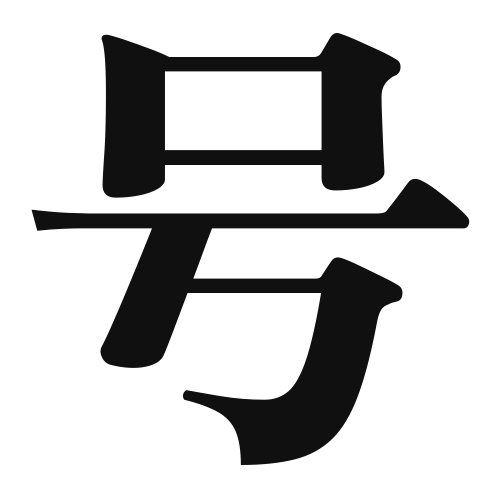1. Overview of Meaning
The kanji “号” (gō) primarily means “number,” “sign,” or “call.” It is often used to indicate a specific number in a sequence, such as in addresses, names, or titles.
2. Formation and Radical
Formation of the Kanji: The kanji “号” is a phonetic-ideographic character (形声文字). It combines the radical for “mouth” (口) with a phonetic component that suggests its pronunciation.
Radical: The radical of “号” is 口 (kuchi), which means “mouth.” This relates to the idea of calling or naming.
3. Examples of Usage
Common Words and Phrases: Some frequently used words that include “号” are:
- 号室 (ごうしつ, gōshitsu) – room number
- 号令 (ごうれい, gōrei) – command or order
Example Sentences in Daily Conversation:
- 「私の部屋は号室です。」(Watashi no heya wa gōshitsu desu.) – “My room is number [X].”
- 「号令が出たら、すぐに行動してください。」(Gōrei ga detara, sugu ni kōdō shite kudasai.) – “When the command is given, please act immediately.”
4. Synonyms and Antonyms
Similar Kanji: A similar kanji is “数” (sū), which means “number” but emphasizes the concept of counting or quantity rather than a specific designation.
Opposite Kanji: An antonym could be “無” (mu), meaning “none” or “nothing,” which contrasts with the idea of a specific number or designation.
5. Cultural and Historical Background
Relation to Japanese Culture: The kanji “号” is often used in various cultural contexts, such as in naming events, places, or even in literature.
Proverbs and Idioms: While there are no specific proverbs that prominently feature “号,” it is commonly used in expressions related to order and organization, reflecting the importance of structure in Japanese society.
